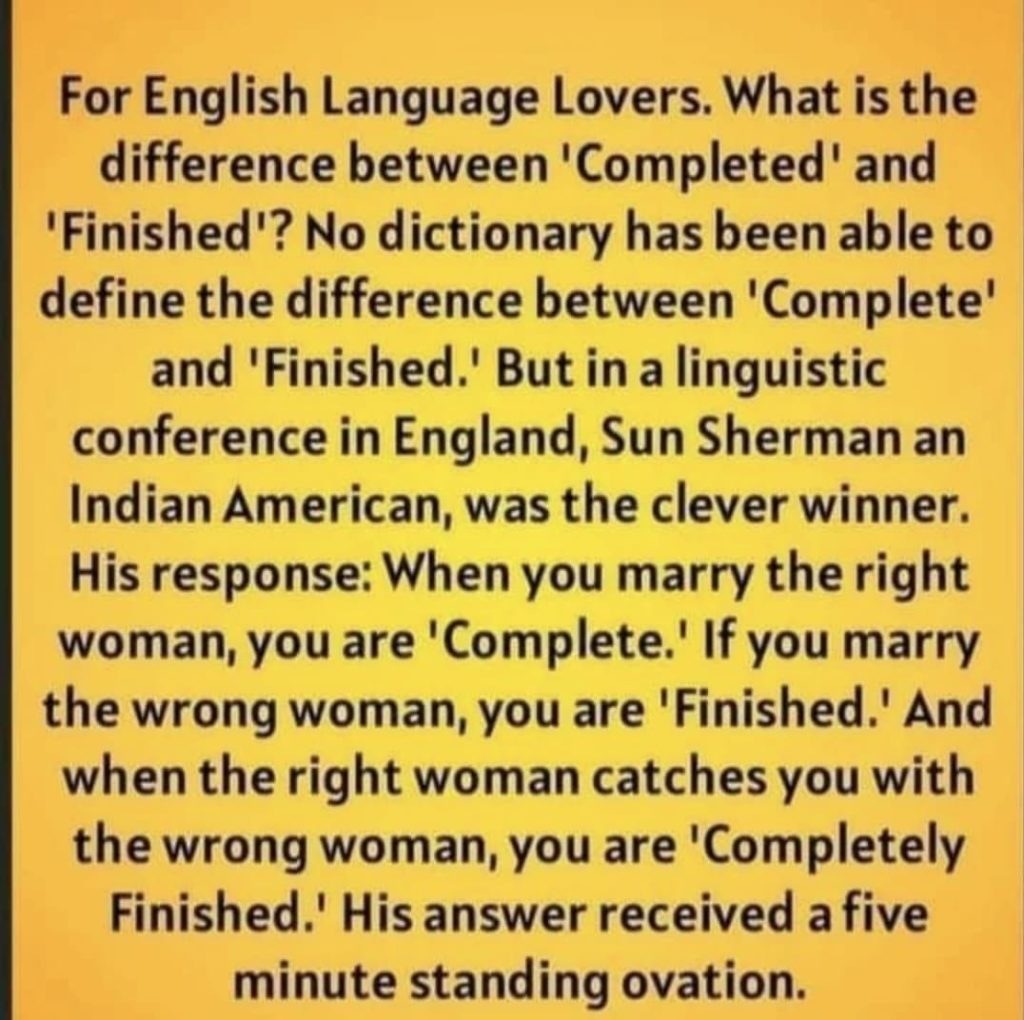Difference Between Complete and Finished
Complete (verb) – To finish doing or making something: She will complete her studies next year.
Finish (verb) – To come to the end of an activity: Have you finished reading that book I gave you?
I hope you enjoyed the light-hearted humour of the heading photo of this blog!
Complete and finish can be used interchangeably in some contexts, but not in others. For example, we never say, “Have you completed eating?” It’s always, “Have you finished eating?” We might however say, “Have you completed/finished renovating the apartment?”
Complete typically means to bring something to a state of wholeness or to finish what was started. All the necessary parts or elements are present and there is nothing more left to add. For example, “I need to complete this report before the deadline.” Here, complete refers to finishing and finalizing the report to be ready for submission.
Finish typically refers to concluding or putting an end to something. For example,”The children have finished playing with their toys.” Here, finished means the activity of playing with toys has been brought to a conclusion.
In short, complete refers to a state of being and finish refers to an action or process.
Finish can also be used as a noun.
Finish (noun) – The end of a race, or the last part of something. Example: I enjoyed the football match from start to finish.
Finish (noun) – The way the surface of something feels or looks: The table has a nice, smooth finish.
Complete can also be used as an adjective,
Complete (adjective) – Including all the parts, details or features: All our machines come complete with a one-year service warranty.
Complete (adjective) Used to emphasize what you are saying: The meeting was a complete waste of time.
Do you want to improve your English online with a CELTA qualified native English speaker? If you do, schedule an online English class with me. There are three types of online English classes to choose from, with no subscriptions or block booking of lessons needed. Schedule and pay for just once class at a time, leaving you in full financial control.
Cafe Conversation – Conversational English about any topic: Book here.
General English, for those who like to have more structured study using articles, videos, materials etc. You will also get a free class report containing new words/phrases, errors etc. Book here.
Business English, for those who need to improve their business English or who want to practise presentations etc. You will also get a free class report containing new words/phrases, errors etc. Book here.
I’m really looking forward to meeting you and helping you improve your English!

